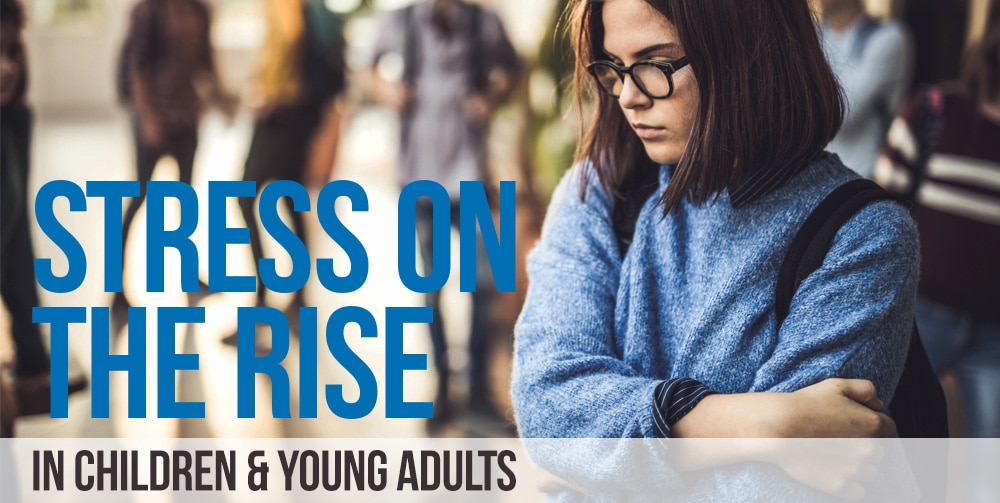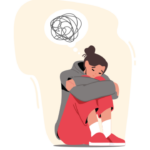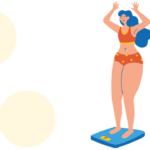
Why are we seeing increased stress levels and anxiety in our children and teens? Trouble falling asleep, nail biting, fear of being alone, being clingy, concentration problems, and a strong startle response.
A certain amount of stress and anxiety is perfectly reasonable as young children and teens learn to adapt and respond to different situations both in and out of the classrooms. Stressing about a test or worrying about fitting in with friends is part of any child’s healthy development. Still, for many kids, worries and fears take over their emotional well-being and can even cause severe physical and mental symptoms.
Warning Signs:Trouble falling asleep, nail biting, fear of being alone, being clingy, concentration problems, and a strong startle response.
Why are we seeing increased stress levels and anxiety in our children and teens?
Some experts suggest childhood stress has significant implications for how children develop and increases their vulnerability for anxiety and depression. Other factors can include poor diet, lack of exercise, the role of the family, electromagnetic frequencies, social media, and cyberbullying. For example, different studies have found that media portrayals of body image and the “ideal” life create very unrealistic expectations for teenagers, disrupting their “normal identity development,” thus leading to depression, anxiety, and increased insecurities.
In addition, other factors seldom addressed in Western medicine include:
1. CHRONIC STRESS
:
Chronic stress at any age, which can cause adrenal fatigue, thus resulting in many symptoms similar to the classic anxiety or depression diagnosis criteria. Symptoms such as low energy, sleep problems, mood swings, depression, anxiety, and weight loss or weight gain are common in people with adrenal fatigue.
2. SUGAR
Sugar consumption is usually very high in children and teens, and it has been linked to depression, anxiety, suicide, irritability, anger outbursts, anxiety, fatigue, and lethargy. Many people are not aware, but sugar is a “mood-altering drug.”
VITAMIN D
Vitamin D deficiency can also contribute, and vitamin D deficiency has been repeatedly observed in conditions involving inflammation, such as anxiety and depression.
ENVIRONMENTAL TOXINS
Environmental toxins are other possible causes of anxiety and mood disorders in both teens and adults.
Adolescence is also a time of considerable changes in hormones and brain chemistry making this group more vulnerable. It is essential for kids to understand the risks and causes, and how to make changes to prevent a disorder from occurring.
Support for Teen Mental Health
Diet, exercise, and natural supplements can play a significant role in mental health for people of all ages.
OMEGA-3S
The American Psychiatric Association has concluded that there is strong evidence to support the use of omega-3s in depression and bipolar disorder, and preliminary research supports its effectiveness in anxiety issues. Recent evidence shows that omega-3s help protect the brain’s neurotransmission (communication) system from damage induced by stress.
PROBIOTICS
Probiotics (particularly Lactobacillus and Bifidobacterium) exert a profound anxiolytic influence through the production of neurotransmitters and short-chain fatty acids, and by dampening the stress reaction.
GABA-AMINOBUTYRIC ACID (GABA)
GABA is the most important inhibitory neurotransmitter in the brain and acts as a brake in times of increased stress. Researchers have found that GABA supplementation helped children and teens with attention deficit hyperactive disorder (ADHD) to focus mentally and to deal with routine stress more effectively. Natural GABA is preferred over synthetic. Natural GABA is produced via a fermentation process that utilizes Lactobacillus hilgardii, the same bacteria that is used to ferment cabbage in kimchi.
L-THEANINE
L-Theanine stimulates the production of alpha brain waves for relaxation and reduces beta waves associated with nervousness, scattered thoughts, and hyperactivity and difficulty sleeping. The supplements mentioned above are safe for teens; however, there have been no studies explicitly done on anxiety in young children.
LAVENDER OIL
Lavender Oil is effective in the treatment of mood issues, as well as disturbed sleep and general well- being. In one study, 80 mg of lavender oil taken orally was compared to 0.5 mg of lorazepam in patients with a generalized anxiety. After six weeks, the lavender group had a response rate of 52.5% compared to 40.5% of those on the drug. Drops of lavender oil can be applied under the nose or on temples to help in stressful situations for relaxation and is safe in children of all ages.
Other treatment options for children and teens with depression include:
COGNITIVE BEHAVIOURAL THERAPY
Counselling with a mental health professional to improve coping skills, communication, and problem-solving can be beneficial.
MINDFULNESS
Practising mindfulness has numerous positive effects on well-being and can be used as a powerful intervention for teens. Research has shown that meditation is just as effective as medication for anxiety and mild depression in teens.
EXERCISE
A recent study indicated that exercise might help reduce mild-to-moderate depression symptoms among adolescents and can potentially be used as an alternative treatment to medication and therapy.
Finding solutions to help children cope, and encouraging children and young adults to share their feelings go a long way in assisting them with options.












